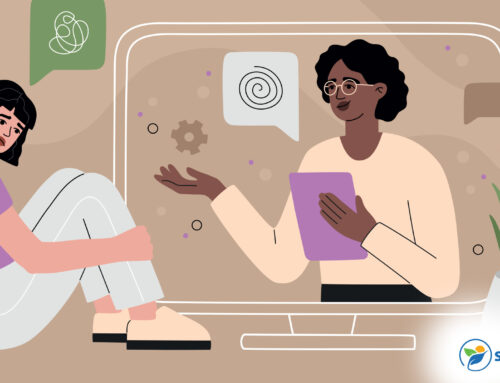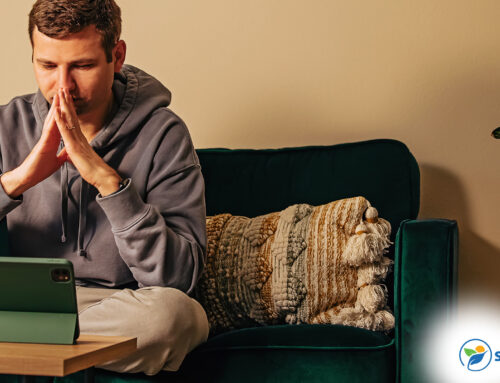More than 21 million Americans have a substance use disorder, but in 2021, only 11% of them reached out for professional help for managing their addiction. There are many barriers standing between people with addiction and treatment, such as denial, shame, fear, chemical dependency and co-occurring mental and emotional health issues.
Acknowledgement of the issue is one of the first steps to admitting addiction and asking for help — in many ways, it’s the most important one. Overcoming barriers to admission can be the single most important thing a person can do to start on the road to recovery.
Strength, Not a Weakness
Many people feel, even if they don’t explicitly believe, that asking for help is a sign of weakness. This is by far one of the biggest barriers to care that stops people from reaching out when they need help.
The perception of weakness is an especially tough boundary to overcome for addiction and substance use disorders, precisely because the feeling of weakness or inadequacy is so irrational. It’s absurd to imagine a person living with a broken leg because they don’t want to appear weak, or concealing their diabetes because they’re afraid of being judged for their moral failings. On the contrary, a person who resisted treatment for such obvious physical issues would probably receive more criticism than a person who accepted that they had an issue and sought the necessary treatment as early as possible.
Addiction is perceived very differently, however. From the old days when willpower and a determination to “clean up” were the limits of addiction treatment to the idea that addiction is a moral failing or that addicts are weak, undisciplined, bad or otherwise untrustworthy, millions of people may feel that seeking help hurts them somehow and reduces their position in others’ eyes.
Professional Support From Health Care Providers
If you’re been thinking, “I need help with drug addiction,” having access to a professional health worker can be a literal life-saver. Professionals in the field of addiction medicine and treatment are trained in the latest research, and they’re experienced with enough people dealing with use disorders to have a great deal of insight and understanding of what you’re going through.
People are drawn to this field because of their compassion and willingness to listen to people who need help with their addiction issues. It’s rare that an addiction professional would condemn or judge a patient seeking help for their problem.
When people finally decide to get professional help for their addiction, one of the first things they notice is how understanding the care team tends to be. Doctors, nurses, addiction counselors and even the support staff at inpatient facilities have daily experience with addiction disorders, and the outpatient care coordinators and social workers in this field personally know scores or hundreds of people living at all stages of addiction and recovery. Most of the issues a person brings with them into therapy have all been heard before; it’s rare that a new person in the group has a story about their substance abuse that’s surprising or shocking to anyone they encounter.
The Role of Family and Friends
Family and close friends may have less clinical experience dealing with addiction, but they’re linked by an intimate personal bond that’s hard to damage with a health problem. Instead, most of the damage that addiction does to personal relationships happens while the person is still in denial or actively avoiding treatment. By far the most common feeling among loved ones is relief and gratitude that their child, sibling, spouse or good friend is finally getting life-saving help for their addiction.
Reach Out for Consultations
The first step to recovery is admitting you have a problem. Calling for help is one of the earliest steps to admitting addiction and getting a care plan put together. This can be as personal or informal as you need it to be. Many facilities offer confidential phone consultations for people living with addiction, and for their family members and concerned friends. These consultations are kept strictly private and are protected from disclosure by the same laws that shield medical consultations with a doctor. In most cases, you can speak anonymously and not reveal who you are, though most people do eventually give their names and contact information when they decide to schedule an in-person visit.
During the consultation, you’ll be able to explain your situation to a sympathetic and understanding addiction counselor. You can talk about the substances you’re using or addictive behaviors you’re engaging in, from porn addiction and compulsive gambling to shopping, alcohol abuse and illegal drugs. The person you’re consulting with isn’t judging you in any way but instead is listening for key terms that suggest how big your problem is and what the best next move might be for you.
This person isn’t a sales rep, and they might refer you to a different facility or to a nonprofit organization for the help you need. Throughout the consultation, the emphasis is on helping you understand what’s needed and deciding to take the second step toward recovery.
Finding a Provider That’s Right for You
Eventually, you’re going to need to find an in-person program that works for you. This may take some shopping around, since different facilities use different treatment approaches and not every one of them works for everybody. You’re entitled to ask questions and compare various programs until you find one you’re comfortable with.
Online and In-Person Support Groups
Online and peer support groups are increasingly playing a role in addiction recovery. After the initial inpatient detox period, which may last anywhere from 30 to 90 days and be overseen by a licensed addiction medicine specialist, you’re likely to transition into a more outpatient-based system of check-ins and group therapy sessions. Over time, the clinic visits can become less common and group meetings settle in to around once a week. Going forward, many people who once wrestled with addiction and substance abuse disorders live long, healthy lives in recovery.
Working the Steps
If you feel like something’s holding you back from necessary addiction treatment, a professional team can help you take the first steps. The compassionate addiction counselors at Sunlight Recovery respond to phone calls 24/7. Contact us today and start on the road to a new life in recovery.






